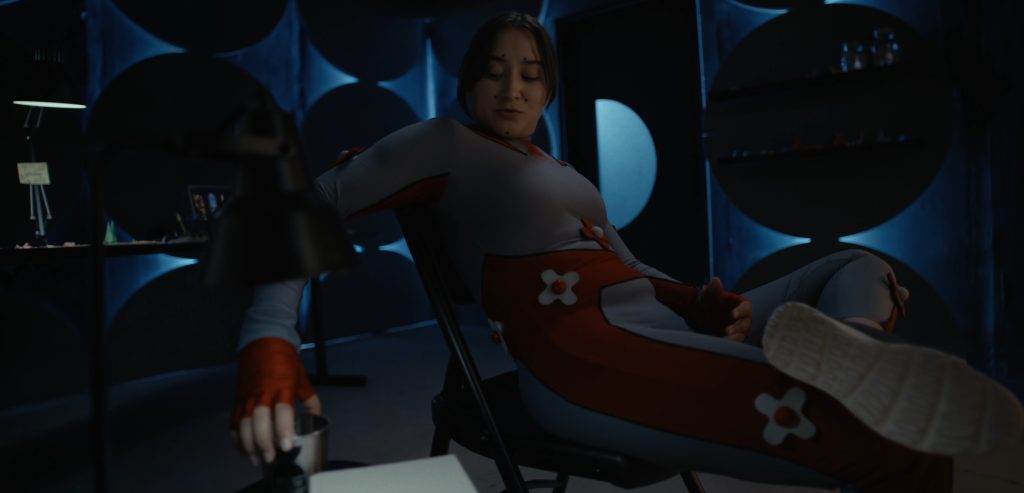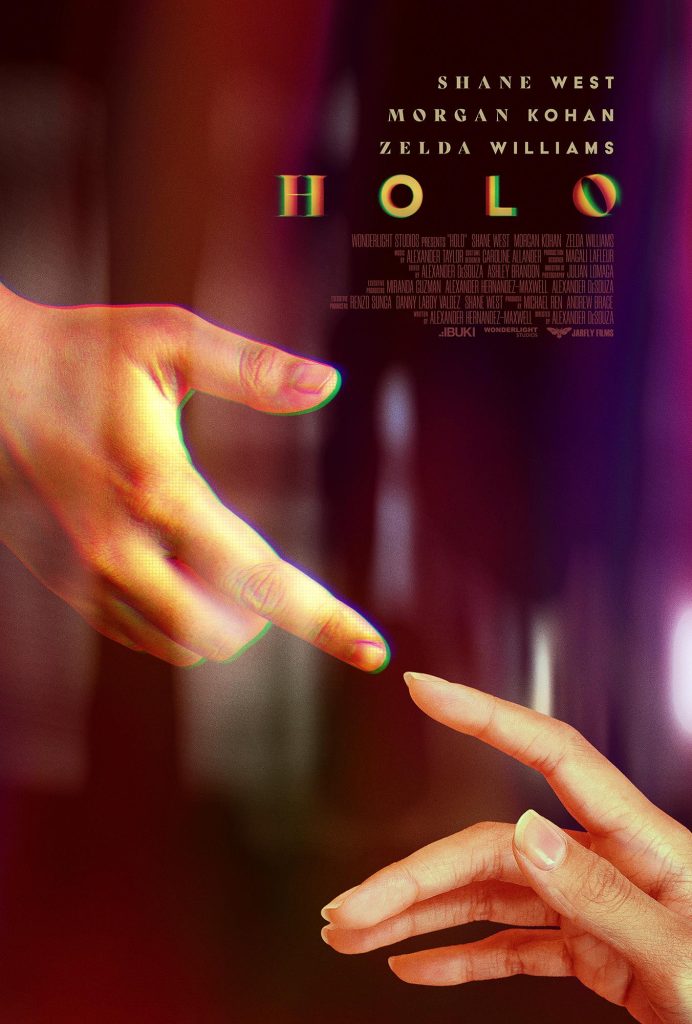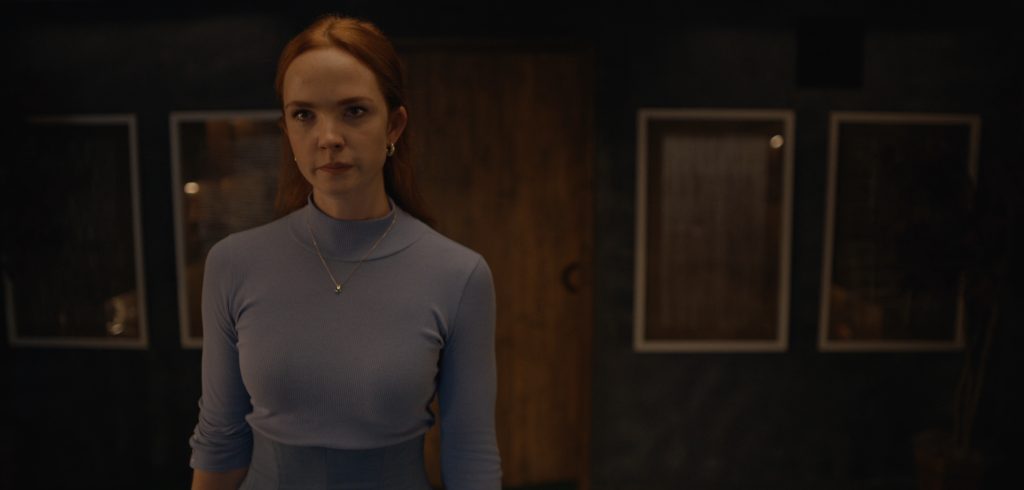Holo is a breathtaking short film that fuses striking sci-fi visuals with raw human emotion. It’s a bold and beautiful meditation on grief, memory and technology.

Set in a near future defined by gleaming glass structures and hushed modernist interiors, Holo imagines a service where cutting-edge holographic and motion capture technology allows clients to interact with lifelike projections of the deceased. Into this strange new world walks Claire (Morgan Kohan), a woman still reeling from the trauma of her abusive partner Jared (Shane West), who has long since died. Her guide in this process is Grey (Zelda Williams), an enigmatic operator whose calm demeanour belies the emotional toll her work requires.
The setup is simple: two people on opposite sides of a glass wall, one of them preparing to summon a ghost from memory. Yet what unfolds is far more complex than any mere resurrection fantasy. As Claire confronts Jared’s simulated presence, the room becomes a crucible for years of unspoken grief, fury and longing. The air practically hums with tension as the past and present blur together in front of our eyes.
The performances are extraordinary across the board. Kohan delivers a tour de force as Claire, oscillating between fragility and defiance with each exchange. Williams is mesmerising as Grey, her stoic professionalism hinting at a deep reservoir of empathy, while West masterfully shifts from charm to menace as Jared’s digital phantom. Even in smaller roles, such as Beth Hornby’s brief turn as Denise from client liaison, there are moments of disarming humanity that keep this world grounded.

DeSouza’s direction cleverly embraces stillness, allowing pauses to stretch just long enough for emotions to surface. The film feels patient yet razor-taut, giving the audience time to sit with every flicker of pain on Claire’s face. It never rushes, and in that unhurried rhythm lies its greatest power.
Visually, Holo is breathtaking. The production design echoes the clinical futurism of Blade Runner 2049, but with a softer, almost ethereal palette of light. Every frame is considered, with diffused illumination washing over sleek glass surfaces and flower-like insignias on uniforms hinting at the culture of this imagined world. Even a single early shot of Claire waiting alone beneath a staircase speaks volumes, evoking isolation in a world built to appear perfect. It is this attention to design that makes Holo so transporting. You can sense the lineage of classic dystopian design from Logan’s Run to The Running Man, yet the aesthetic feels wholly its own. This is a world that looks lived in, not just imagined.
As a proof-of-concept, Holo feels primed to expand into a longer series. There are rich ethical and psychological questions lurking here about grief as a commodity, about the emotional labour expected of people like Grey, and about the dangers of rewriting the past to soothe present pain. One can easily imagine this premise fuelling an eight-part miniseries, each episode peeling back further layers of this haunting technology and its toll on both clients and operators.

And yet Holo works perfectly as a standalone story. Its climax delivers two twists, the first deliberately foreshadowed to lull the viewer, the second arriving like a quiet detonation of grief. It is shocking, yes, but not for the sake of shock — it resonates because it is emotionally truthful.
Holo is more than just a striking piece of sci-fi. It is a powerful exploration of mourning, trauma and the perilous comfort of simulated closure. Every aspect — the acting, the design, the pacing — comes together to form a work of rare beauty and emotional intelligence. If this short film is any indication, Alexander DeSouza and Alexander Hernandez-Maxwell are talents to watch, and Holo deserves to be the start of something much bigger. This is concept-driven science fiction done right: deeply human at its core, devastating in its execution, and impossible to forget.
